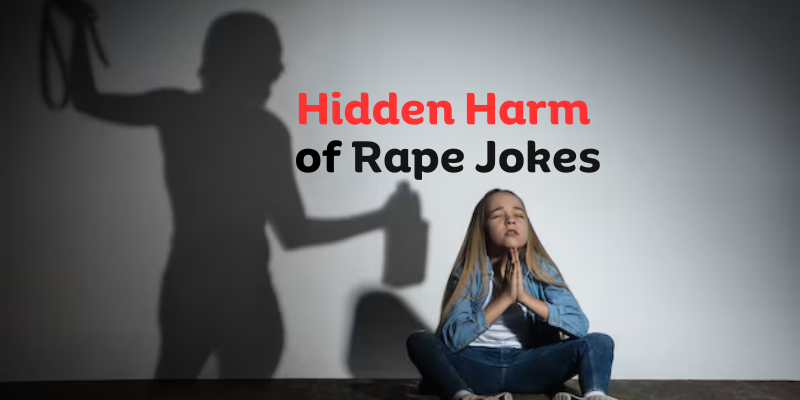Laughter helps us talk about tough topics when we are with other people. It can be very harmful while Having jokes about rape, sexual violence or abuse. These jokes are not isolated. They are part of a larger culture trend that makes this kind of hurtful humor seem normal.
Talking about the “rape culture” we can see sexual Violence is seen as silly, acceptable, or even normal in society. But this includes ideas and actions that encourage sexual objectification with different sexist language, shaming victims and playing down the seriousness of these crimes. This kind of language is used in all kinds of talks, from casual chats between friends to jokes on social media to family get-togethers to catcall on the street. People say these hurtful things in public and are usually thought to be harmless.
Also Read: HMPV Infections Surge in the US: 5 Key Facts You Need to Know
People in our Society sometimes say that rape and sexual violence are like shaking hands, which means that everyone is responsible. This view doesn’t take into account the fact that victims never choose to be victims; abusers choose to abuse. Still, victims are often blamed and left alone, while abusers are often let off the hook or even encouraged. Some comments, like “She was asking for it with that outfit” or “She must have a lot of guys after her,” connect women’s worth to being an object for men’s attention. This shows how deeply embedded these ideas are.
These comments and jokes are more than just words; they can hurt people for a long time and make them feel shame, guilt, fear, and aloneness. Others see them as dangerous fun, while others see them as bad things that happen for life. What’s wrong is that this kind of joking has become normal. time someone laughs at a rape joke, it sends the message that hitting someone is okay or even funny. setting, victims are afraid to report crimes for fear of being judged and getting in trouble. important to create a culture where victims are believed, helped, and not judged. People don’t want or deserve this kind of abuse.
People’s thoughts and feelings are affected by social media in a big way. also shares the language of rape culture through memes, posts that make fun of sexual violence, rude words used in online chats, and influencers who play down these problems. Violence is often used as a story device in movies and TV shows, which reinforces ideas about what men and women should be like. shown to be strong and right to women’s bodies, while women are shown to be weak and dependent. Assassination and slut-shaming are more common on social media because people often blame victims based on how they act or look. This harmful impact makes harmful norms even stronger.
These problems are just as important in Nepal, a country with its own unique culture. It is important to talk about and question the daily language that supports rape culture in order to make the world a safer and more supportive place for everyone.





